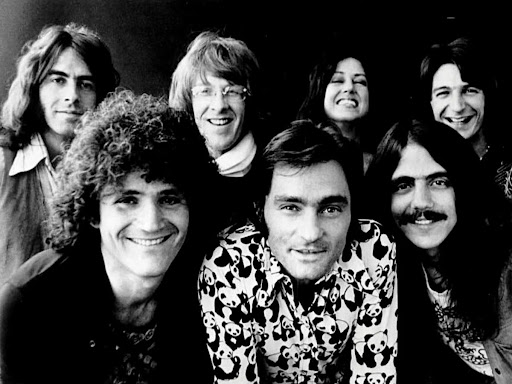#Ruby the Hatchet #psychedelic metal #doom metal #psychedelic rock #occult rock #heavy psych #music video
Forming after a series of basement practices in New Jersey circa 2010 before relocating to Philadelphia, psychedelic quintet Ruby the Hatchet brings together doomy, evil hard rock with occult-flavored psychedelia for a witchy brew of dazzled and ominous wild rock sounds. The band features guitarist Johnny Scarps, drummer Owen Stewart, bassist Mike Parise, and keyboard player Sean Hur, and is trademarked by the howling, dynamic vocals of Jillian Taylor. To date the band has released three studio albums among a handful of EPs and have toured throughout North America and Europe. From: https://riffipedia.fandom.com/wiki/Ruby_The_Hatchet
Ruby The Hatchet have been around since 2011 representing the Doom scene with seductive tones and a mystique. Ruby doesn’t perform the laborious plodding down-tuned dirge but embraces a callback to psychedelic and classic rock. Jillian Taylor, lead vocalist, projects her engaging voice while the band adds the deep rhythms of Owen Stewart (drums) and Lake Muir (bass) and John Scarperia’s chugging riffs. The attraction also emanates from Sean Kan Hur leaning heavy on the Hammond. As the past exhibits, these five create a masterful blend of captivating rock. We can look back to their label debut album, Valley of the Snake, and then their follow up, 2017’s Planetary Space Child. Ruby targeted their brand of mysticism via a space theme (related to astrology) which lends itself just as equally to exploration and isolation. Now, in 2022, they return hypnotizing any audience as a Wizards wicked spell would. Fear Is A Cruel Master is out on Magnetic Eye records October 21st. Ruby defines the Rock ‘n’ Roll ethos. Not just with their sonic declarations, but in addition to being on J Mascis’ (Deep Wound, Dinosaur Jr, Witch, live guest of Negative Approach) prestigious label, Tee Pee, the band has self-released their debut LP, Ouroboros, and two EPs. Independence, rebellion, and defiance are apparent attributes of these five redeemers of the riff. From: https://newnoisemagazine.com/reviews/album-review-ruby-the-hatchet-fear-is-a-cruel-master/
















